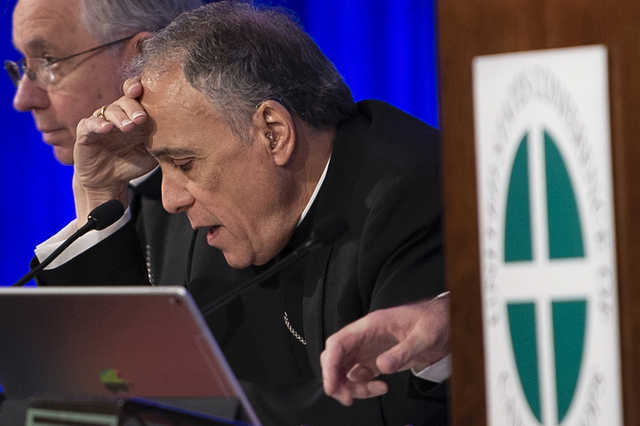Call 911, Not the Church
Buffalo News
Catholic bishops came out last week with their plan to deal with bishops who commit or cover up sexual abuse. Their idea is that they will watch each other, and it is wholly insufficient. It’s startling that this needs to be said, but allegations of criminal sexual abuse should be referred directly to the police — investigators who are trained to get to the bottom of such issues. It doesn’t matter if the allegations are against priests, bishops, ministers, teachers, Scout leaders or Uncle Pete: Go to the police. That the bishops either don’t get that or don’t want it can only promote the kind of arrogant insularity that led to this crisis in the first place. The Catholic Church is full of many good men, of course, but they are, in the end, only human. Many of them, including bishops, may be willing and able to surmount the temptations that are inherent in our shared humanity — largely, in this case, self-interest. But it has been plain over the years that too many of them are neither willing nor able. That’s the problem with this non-solution. In many cases, bishops have helped to cover up the problem of sexual abuse by priests, including the molestation of minors. In some cases, bishops, themselves have been guilty of such abuse. Some note that most recent allegations of abuse have been from assaults that occurred many years ago, arguing that the church has learned from its own terrible history. That’s possible, of course, but that approach, and the bishops’ plan to police themselves, ignores a critical and unavoidable fact. Many Catholics — and much of the rest of the world — remain not only disappointed in the church, but skeptical of its conversion. Those doubts make themselves plain in declining church attendance and in diminished giving, not just to the church and its religious campaigns, but to valuable social organizations such as Catholic Charities. Here, for example, this year’s drive by Catholic Charities is about 20 percent short of its goal with less than two weeks remaining. Any significant shortfall is liable to cause suffering among clients of the agency. Giving at Western New York parishes is also down since August and is likely to result in a budget shortfall, according to the Rev. Peter J. Karalus, the diocese’s chief operating officer. “The abuse scandal has had consequences on the financial condition of the diocese beyond the cost of settling claims,” he said in a preface to the diocese’s 2018 financial report. It’s a story being repeated across the country. A new Pew Research Center survey released earlier this month reported that more than a quarter of U.S. Catholics say they went to Mass less often and reduced their giving to a parish or diocese specifically because of reports of clergy sex abuse and misconduct in the church. (Those who went to Mass weekly were less likely to say their attendance or giving had declined.) Those are crisis numbers and you don’t fix them through self-protection. The bishops’ new policy, announced last week, is no more than that. It tells parishioners and others who already have their doubts just to trust them to get it right, this time. That’s a lot to expect, given the history, and it’s a risk both to the church’s financial stability and its faith mission. It suggests that the goal is to remain insulated from traditional forms of accountability, regardless of the cost. For example, the bishops not only say they will police themselves, but they set up a sex abuse hot line. That may seem proactive, but if it sidelines the police – as it seems likely to do – it will hurt in the long run. Anne Burke, an Illinois Supreme Court justice who chaired the church’s National Review Board when the sexual abuse crisis first erupted in 2002, criticized the new policy. “There should be no intermediary — call the police,” she said. “There should be one interview, by professionals.” She is not only correct, but incontestably correct. We hope the bishops will rethink this inadequate and dangerous policy and that anyone with a serious complaint about abuse will remember the hot line that matters: 911.
|
.
Any original material on these pages is copyright © BishopAccountability.org 2004. Reproduce freely with attribution.
